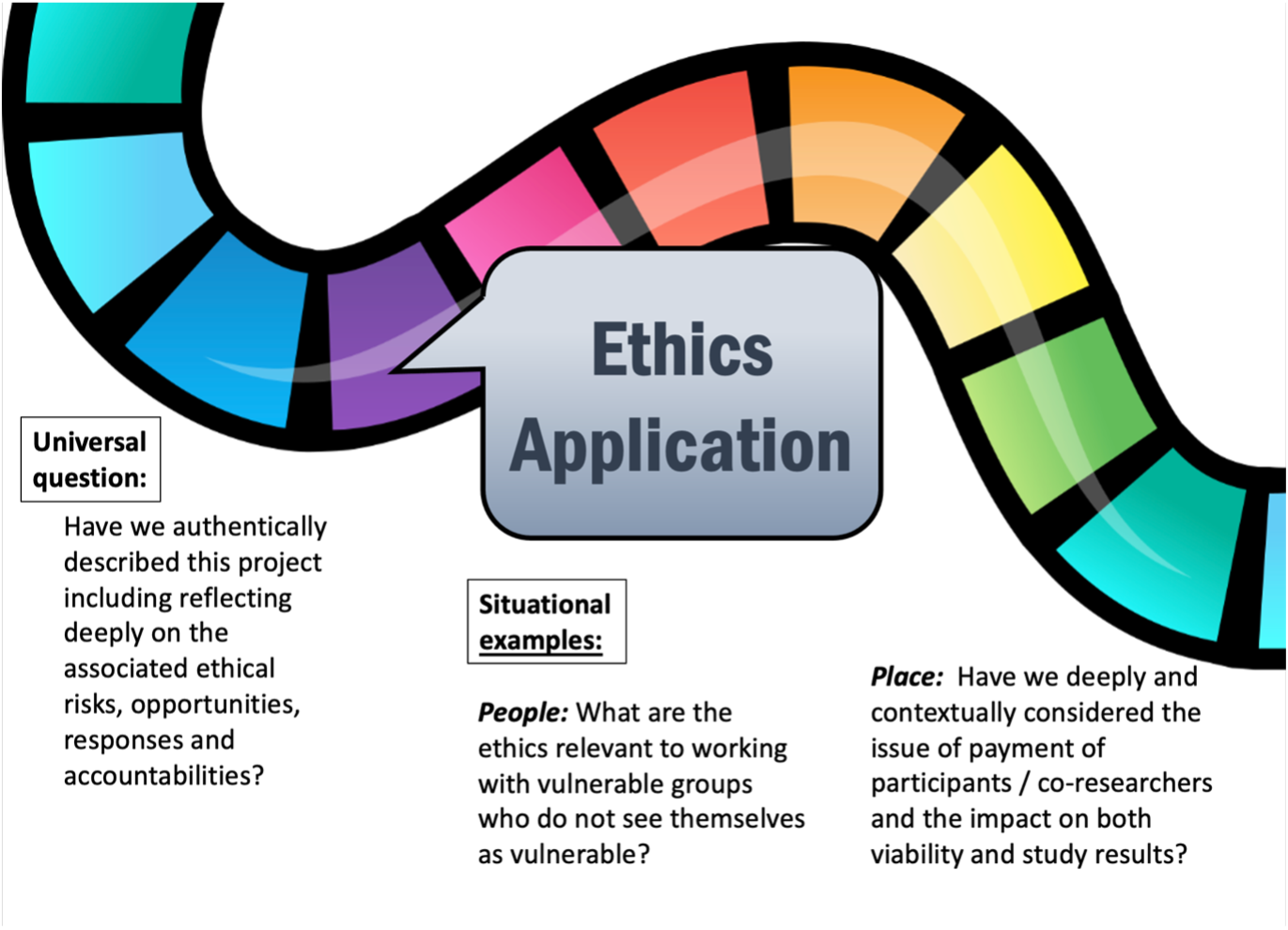|
Stage 5 ETHICS APPLICATION(S)
|
Prior to data collection, appropriate ethics application forms must be completed. This ethics application looks particularly at the manner of data collection and nature of data being collected and also considers intent, contextual considerations and the likelihood of a project being brought safely to fruition. Important note: This is the step that most people automatically think of when they consider ‘research ethics’. However, as demonstrated on this page, ethical considerations must take place at every step of the research journey, this is simply one of those steps.
Completing our ethics applications, both at home and abroad, is a critical moment in which we move closer to project approval and the opportunity to begin our research. It is tempting to rush through this ‘administrative’ process without fully engaging with the opportunity to reflect on the range of options available to us in designing and undertaking our research. |
|||
|
|
||||
|
Being alert to ethical dilemmas |
||||
|
What needs to be included in our ethics application to ensure ethical risks, opportunities, responses and accountabilities are fully described?
|
Supporting considerations:
|
|||
|
Working towards solutions |
||||
|
Place |
People |
Principles |
Precedent |
|
|
Be sure to know the local regulations. Consider how you will deal with conflicts between regulations and how these will be resolved. Apply to and discuss your project with the ethics committees of all countries that will participate in the research. Discuss with your partners (and with the ethics committees themselves) any disagreement in the criteria or suggestions of the different committees that evaluate the project.
|
Take advantage of the ethical applications to discuss and reflect with your team about the ethical challenges of your research.
If possible, establish a dialogue with the ethics committees (see them as an ally in your research, not as an obstacle to project approval).
|
Be honest. Do not try to hide possible ethical conflicts. If there are ethical problems with your project, it is better to know it and have the advice of the ethics committee. If you identify ethical conflicts in time you will probably find a solution (later, it will be more difficult, and the consequences will be greater). |
Make sure your team knows the ethical regulations of the place where the investigation will be conducted. If you are unclear, who might be best placed to source this information? Review previous research that has used similar methodologies. It may also be a good idea to write to a researcher who has done similar research and ask for advice. |
|
Body
